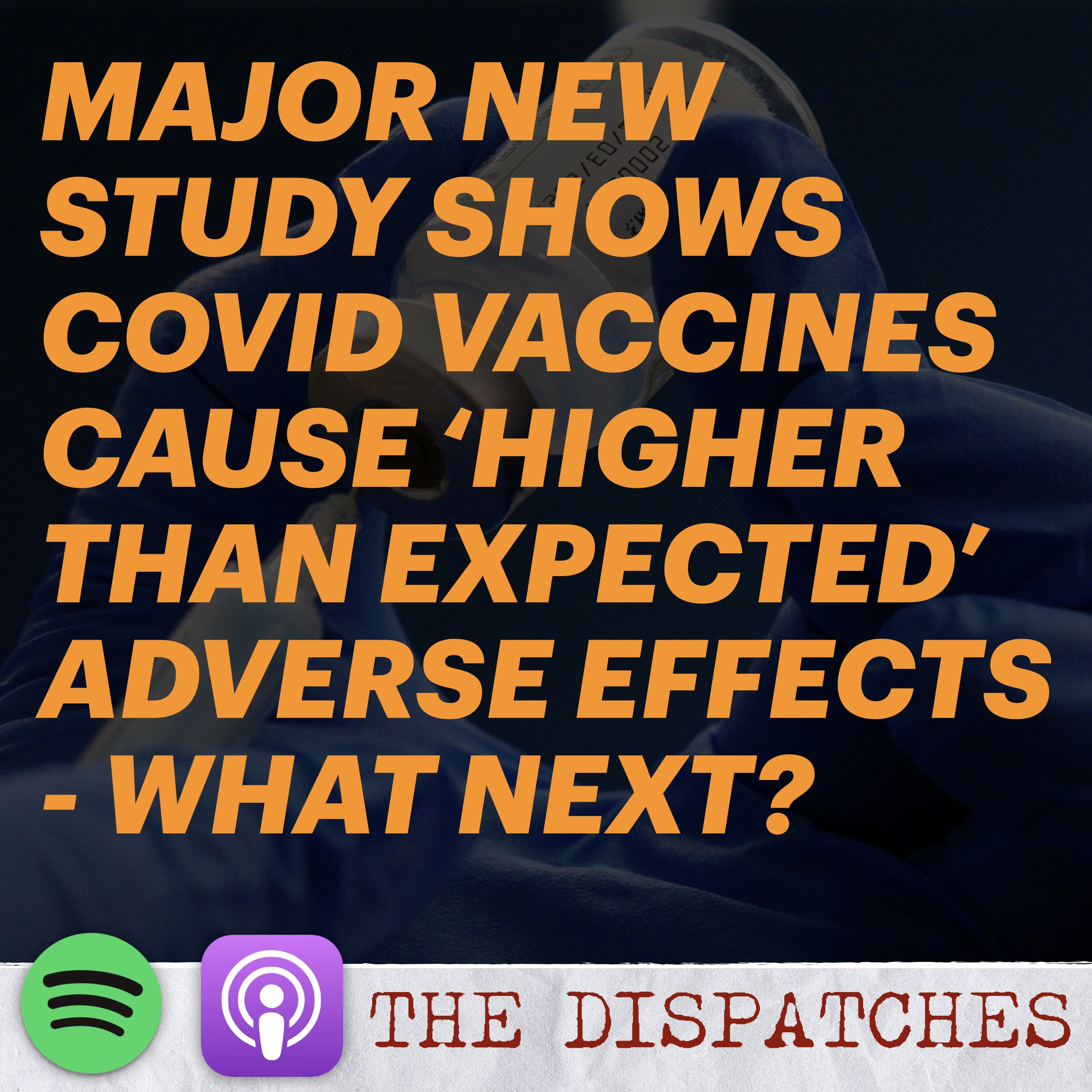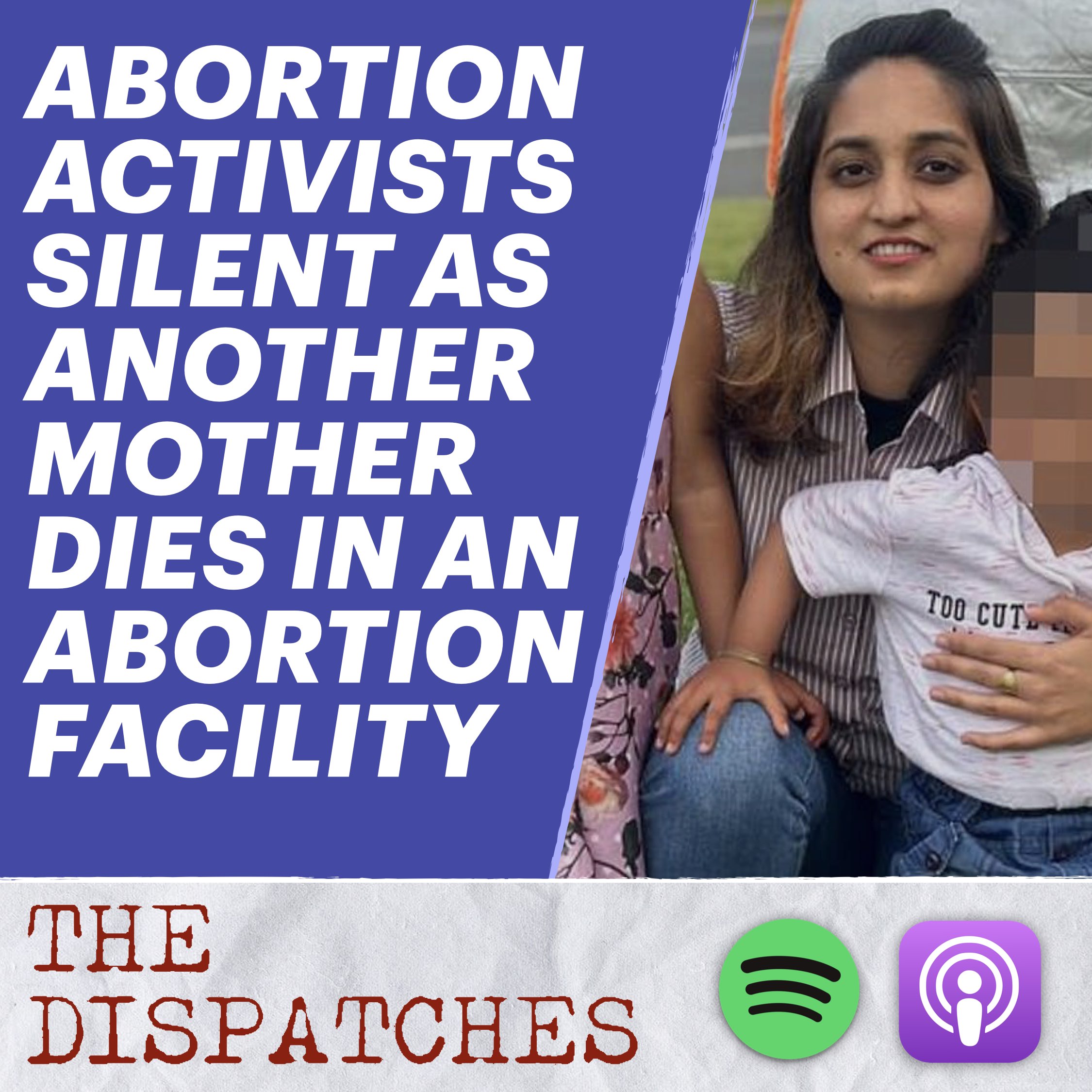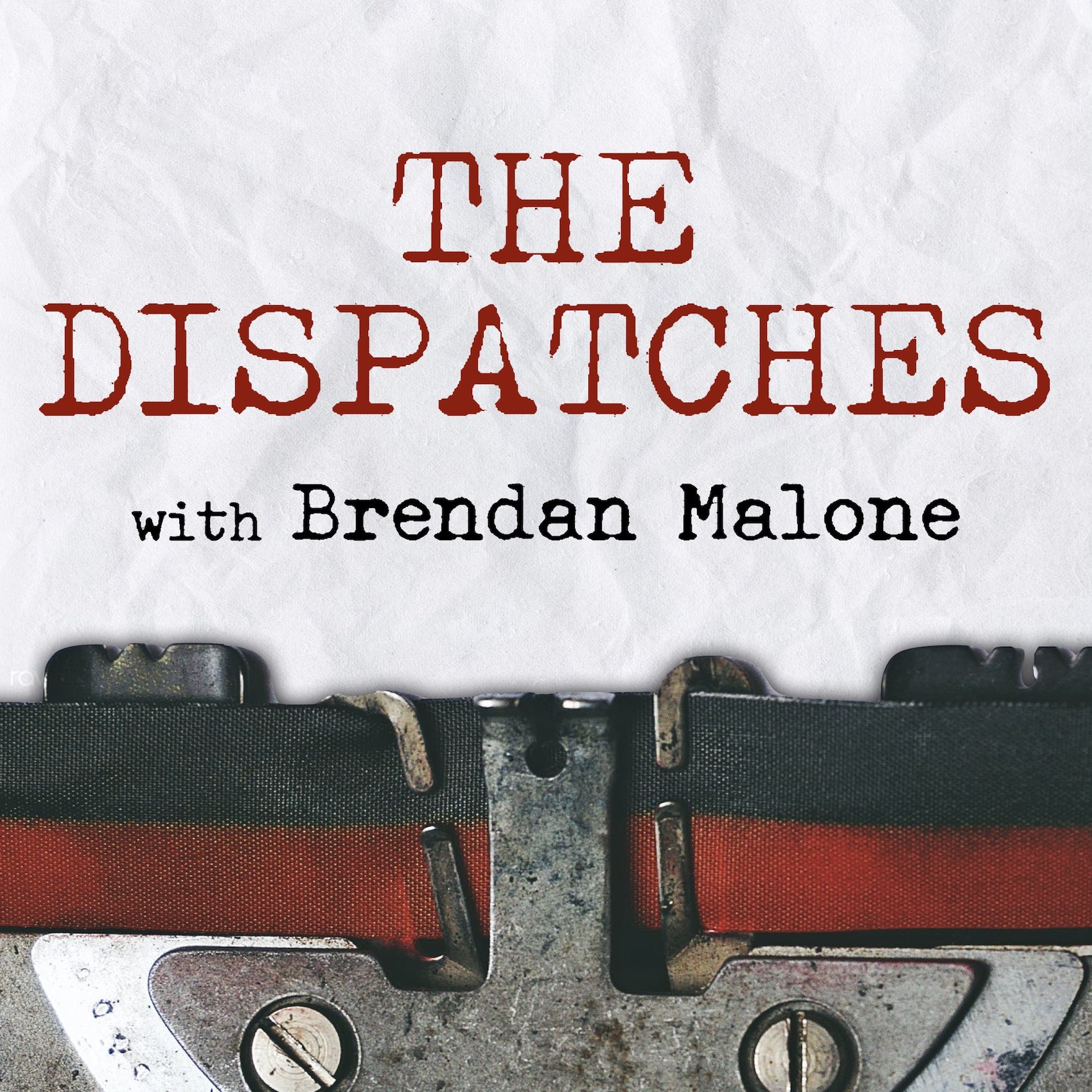[00:00:04] Hi, my name is Brendan Malone and you're listening to the dispatchers, the podcast that strives to cut through all the noise in order to challenge the popular narratives of the day with some good old fashioned contrarian thinking. You might not always agree, but at least you'll be taking a deeper look at the world around you.
[00:00:22] Hi everybody. Welcome along to the Friday free to air. So to the Dispatchers podcast. My name is Brendan Malone. It is great to be back with you again. Don't forget, if you become a patron, you will get access to a daily episode of the Dispatchers podcast. So every single day, an episode of the Dispatchers podcast go to patreon.com left foot media. With $5 or more per month, you get access to that free podcast. Right? Let's jump into today's topic of conversation, this major new study which proves that Covid vaccines cause adverse effects. Well, what next? So let me read to you from this article about this brand new study. It's only been published recently, and the reporting about this is. So this article I'm going to read to you is from February the 19th. So it's only a couple of days old, and I have chosen a source specifically to read from with the article source because I wanted to make sure that I was getting a read on this particular study that wasn't colored in, I guess, a ha ha, we told you so kind of direction, or any sort of source where someone could say, oh, they're just elevating, they're just exaggerating. And this is full of hyperbole. So the source I've chosen is the hill. The Hill is a us news source that leans to the left. That is a left leaning source. And so I think that needs to be factored in and I'll talk about why in just a minute, because I've got four questions, basically after I read to you from this article that I think are worthy of consideration. And one of them relates to what we're reading here in this particular source, a new study on Covid-19 vaccines that looked at nearly 100 million vaccinated individuals. I'll read that again. 100 million vaccinated individuals. So this is not one of those. Oh, we looked at ten people. Oh, we just found five people who had issues. 100 million vaccinated individuals.
[00:02:33] The study has affirmed the vaccines previously observed links to increased risks for certain adverse effects, including myocarditis and gheelane bare syndrome. The researchers, and there's more too. We'll talk about some of the specifics in a second. The researchers noted in their analysis that Covid-19 infections have consistently been found to be more likely to cause the conditions observed in this study than vaccinations, adding that that factor should be considered when weighing the risk to benefit ratio of immunization. We'll talk about that specific point in just a second as well. The study was conducted by the Global COVID Vaccine Safety Project and took into account almost 100 million vaccinated individuals and this is the important bit across eight countries, Argentina, Australia, Canada, Denmark, Finland, France, New Zealand and Scotland. So not only have they got a massive sample size that they're looking at, but they are also across eight different countries. The report specifically looked at adverse effects following administration of the Pfizer, Moderna and AstraZeneca vaccines. The researchers looked for 13 adverse events of special interest that occurred in vaccine recipients for up to 42 days after shots were administered. These conditions included gheelane bare syndrome, Bell's palsy, convulsions, myocarditis and pericarditis. Researchers observed a significant increase in cases of Ghilan bare syndrome among those who received the AstraZeneca vaccine within 42 days of administration. They also noted higher than expected instances of acute disseminated encephalomyelitis, inflammation of the brain and spinal cord among those who received the first dose of Moderna's vaccine. Now here's the important bit for us. Particularly in New Zealand, both mrna vaccines from Pfizer and Moderna were associated with instances of myocarditis, inflammation of the heart muscle, which occurred more than was expected in the study, with the condition having a significant observed to expected ratio consistently after the first, second and third doses. Significantly higher than expected cases of pericarditis, which is inflammation of the sac like structure that surrounds the heart, were also observed following the first and fourth doses of Moderna's vaccine. The safety signals identified in this study should be evaluated in the context of their rarity, severity and clinical relevance, the researchers wrote. Moreover, overall risk benefit evaluations of vaccinations should take the risk associated with infection into account as multiple studies demonstrated higher risk of developing the events under study such as GBS myocarditis or ADEM following SARS CoV two infection than from vaccination. Now we'll talk to that specific point in just a second. Now let me just read to you the key bit in those two paragraphs again associated with the Pfizer and Moderna vaccine, that both of them are associated with pericarditis and myocarditis, and in both of those cases the researchers are saying that they found more instances than was expected. There was a significant quote unquote observed to expected ratio. They also say that cases of pericarditis were significantly higher than expected. The mrna vaccines the risk of pericarditis was almost two times higher than expected after first dose and 2.6 times higher after the fourth dose. So these are not insignificant increases in what they were expecting to see. So in other words, these adverse events, they are real and they saw more of them than they expected to see. I think that is noteworthy. So there's four questions that strike me in relation to this study, because it is huge, it is comprehensive. It's not some group that's set out to try and prove that there's a problem with COVID vaccines. It has a massive study sample size and it crosses eight countries. It's collected data from eight different places. This is a pretty solid piece of research, as far as I can tell. So the first question that struck me upon hearing about this research was, number one, are we still actually getting the full story here? Let me have a read to you from the final paragraph to highlight why I would ask that question. The global COVID Vaccine Safety project is supported by the Centers for Disease Control and Prevention, the CDC, and the Department of Health and Human Services. Several of the authors received financial support from or have relationships with government agencies, including the CDC, the New Zealand Ministry of Health, and the Canadian Institutes of Health Research, which they disclosed as potential conflicts of interest. So the people involved in authoring the study have, under the general requirement is that you would disclose any conflicts of interest. And they have disclosed that they have financial relationships and connections with these government agencies. Several of the researchers also reported having relationships or having previously received payments from biopharmaceutical companies Gilead Sciences, ABV, Inc. Pfizer, and Glaxokline Smith. So you can see why this particular study has left me wondering whether we're still getting the full story. There is clearly an admission here that there's a problem, but is this the full admission? And the reason I say that is I've lived long enough now on God's good earth to know that all of us are prone to bias and all of us are prone to protecting our own interests. And that becomes even more so of a problem when there are financial stakes involved. And there are in this case. And we know, as I said, I've lived on God's green earth long enough to be well aware of the fact that pharmaceutical companies, I guess corporations in general, but particular pharmaceutical companies government agencies and politicians are notorious for covering their own backsides and refusing to take liability for problems that they have either caused or directly contributed to. And so that's all three of those groups are tied up in this particular study because this relates to not just the manufacturer of the vaccine, which is obviously the pharmaceutical companies, but it's also the health authorities, the government agencies, which gave approval. And it's also the politicians who promoted, and in some cases did more than that. They went and mandated these vaccines upon their own people. So that first question for me is, are we really getting the full story here? Because we've shifted.
[00:10:00] As I said, there's clearly an emission here. And as far as I can tell, this is quite a significant shift from where we've been, which was the claim that, no, they were safe and effective, and then there's been these slow sort of sifting and then shifting of the sands as time has progressed. And now we're at the point where we're saying, well, in actual fact, we're seeing significantly higher than we expected adverse events related to things like myocarditis and pericarditis associated with the Pfizer vaccine. Number two, the comparisons in this article between Covid risks and vaccine risks, I don't think they're particularly helpful. I feel that they're actually a bit of a distraction. First of all, to see that that particular statement appears twice in the article, once at the beginning and then once at the end, feels a little bit like the risks associated with the vaccine are being downplayed. And I don't think that's particularly helpful. I think you should just address them as they are, look at the vaccine and examine what the implications of that are. The fact that you see twice these paragraphs that are saying, oh, look, we just got to point out that the risks of these particular conditions from COVID are higher in some studies that have been done previously. And that's assuming those studies are pretty solid and I don't see any reason at the stage to doubt them, then it sort of feels like they're saying, look, what you're about to read sort of should be, maybe don't worry too much about it. And I feel a little bit like that might well be downplaying the risk.
[00:11:33] But here's the other reasons why I think this is not particularly helpful. Number one is the vaccines didn't actually immunize you against Covid. I think it would be different if you got the vaccine and that was it. You never got Covid by actually using this pharmaceutical product but that was not the case.
[00:11:49] And they also didn't stop transmission either. Now, call me old fashioned, but I also think shouldn't the protective measure, and this is my third point here, not actually carry the same risks as the virus it is supposed to protect you against?
[00:12:06] I was preparing for today's episode and I was sort of struggling to think of other pharmaceutical products that are like this, where you take the product to try and protect you from a particular disease, but the product actually has a significantly higher than expected risk of actually giving you some of these very serious conditions that the virus might give you. Or what about someone who wouldn't have got it from the COVID virus, but who got it from the vaccine instead?
[00:12:36] I don't know. I mean, look, the medicos who listen might be able to better inform me, but I don't know. This doesn't quite stack up to me. It seems that if you're going to take a pharmaceutical product, there would be that, what I guess you call the low hum, background noise risk that comes with any sort of vaccine. There is normally a low risk of particular side effects. But the side effects, in theory, shouldn't carry the same risks or they shouldn't be the same risks that you could actually get from the virus. It seems something's not quite right there. Number three, the mandates must be taken into account when evaluating the moral equation in all of this. So it's one thing to compare risks and say, well, there's a slightly higher risk if you actually get Covid than if you get the vaccine.
[00:13:24] But that, I think, is missing the point because it's a whole nother thing here to mandate and to coerce people to take a product with, quote unquote, significantly higher than expected risks associated with it.
[00:13:40] And that's what happened. Now people say, yeah, but we didn't know the risks at the time. To which I say, bingo, that's exactly my point.
[00:13:49] This was a pharmaceutical product, which we know now was both oversold when it came to efficacy. So, for example, we know now that Pfizer never tested its vaccine for efficacy when it comes to blocking the transmission of COVID But there were still political leaders and others claiming that the vaccine would prevent transmission. Where were they getting that information from? Why was that never corrected? So it was oversold when it came to its efficacy.
[00:14:23] The key component of the vaccine was the whole notion of preventing transmission. And then the other one, of course, was blunting the worst effects of the COVID virus.
[00:14:34] And secondly, we now know that it wasn't just oversold but it was also experimental. We did not know the full extent of the risks associated with this product. We didn't know the risk profile because it was rushed into usage. So when people say, we didn't know the risks at the time, that is not a justification for what we're reading here. In actual fact, that only makes the problem worse, because what that means is that there was an experiment that took place here on a whole population or entire populations of people.
[00:15:08] Like, it's one thing for someone to be given all of the facts and then offered the choice regarding what to do next.
[00:15:15] So they are told, look, here's the deal, here's the risks, here's what we know, or maybe here's what we don't know. There's a whole lot of uncertainty here. Instead, we were told it was safe and effective, that there was nothing to worry about here, that anyone who was raising questions was a skeptic, was someone who didn't really care enough about their neighbors to actually do the right thing, all that kind of stuff. Right.
[00:15:39] So it's one thing for someone to be given all the facts and offer the choice regarding what to do next. It's another to compel or coerce them into using a product. And what we have here, in effect, is an experimental product. It was experimental at the time it was released. We know a lot more about it now. Right. And even worse, it was not promoted as such, like I said. Instead, we were sold this as being safe and effective, and it was well researched, et cetera, et cetera. Well, clearly now, when you've got these kinds of studies coming out and showing, look, we've got significantly higher than expected incidence of pericarditis and myocarditis. This was experimental at the time. There's no getting away from that fact. And the vaccine mandates, that's the essential issue that needs to be considered when you are evaluating the situation, because it wasn't simply a case of people taking a product with all of the information up front or people freely entering into that decision, because this wasn't simply a matter of people being presented with all the facts and then making a free choice. People were compelled. Their jobs were threatened. They were threatened with segregation. They were threatened that they couldn't have funerals or full size funerals, that they couldn't have full size weddings, all that kind of stuff, all of the awful stuff that was done at the time to coerce people into taking this vaccine. That was experimental, and we didn't know the full risk profile. And that's a moral problem. It is an absolute moral problem that that was done to people. It's one thing to say, here's a product that we have a really solid or long standing, well researched knowledge of. Here's the risks. Here's the choice. It's another thing to say we don't actually know much about this product, or, well, they didn't admit that, but to claim that it was safe and effective when we didn't actually know much about it, and then to coerce people into it as well. Number four, I think there are big implications of this particular research for communities of faith who mandated and or segregated their own people along vaccination and non vaccination lines. Now, I think this is important because there was absolutely a form of spiritual abuse that was utilized by some Christians and christian leaders when it came to the Pfizer pharmaceutical product in my country, moral claims were being made about this being a christian obligation, when clearly those claims were being made without all of the necessary data. To actually legitimize such claims, like, you must put yourself at risk. Well, clearly, the people making those claims had no idea about the actual risks that they were demanding were a christian obligation upon people.
[00:18:21] Secondly, it went a step further in a lot of cases with claims that you were somehow failing to love your neighbor if you didn't take the Pfizer injections. So in other words, you were failing to act like Christ has commanded his disciples to act. Love God with all your heart, mind and soul, and love your neighbor as yourself, and you are failing that most important of all commandments. Christ tells us, if you didn't get this vaccine, this is a blatant spiritual abuse.
[00:18:51] When someone is being told that they are separating themselves from Christ by not taking a pharmaceutical product, you've now turned a straightforward medical decision into a test of christian orthodoxy, of discipleship, where refusing the pharmaceutical product makes you a heretic who is betraying Christ, who is failing to be faithful to the most important commandment that Christ gave us.
[00:19:16] Imagine putting someone in that situation and not recognizing that as a spiritual abuse. But that is exactly what happened time and time again, and at the end of the day, and this is the important bit, we know now, thanks to this particular research, that people were absolutely put at risk as a direct result of these actions. So things like the mandates and the spiritual abuses, where pressure or coercion was applied, where segregation was utilized, where outright rejection of people from the worshipping community if they didn't take that pharmaceutical product were applied, people's lives were put at risk as a direct result of these actions.
[00:19:57] I know of people who only got the Pfizer injections because they believed it to be a moral obligation that all christians had to adhere to.
[00:20:06] And I suspect that others were also worried about being segregated from their worshipping communities for not doing it. This actually happened to people I know. It was an awful violation of christian charity to see this in action.
[00:20:19] I know of one lady, amazingly faithful, who was forced to sit outside while the church service was going on because they wouldn't let her in. So she just bought her own chair and sort of stood outside and observed from a distance. She didn't try and kick up a scene, wasn't trying to protest, but her supposedly christian community had rejected her. And perversely, those kinds of actions were all turned on their heads with the victims of this kind of approach, then accused of failing to love their neighbor by not getting a pharmaceutical product. So they were the ones who were actually accused of lacking in charity, while a complete lack of charity was being shown to them. And this isn't a minor quibble.
[00:21:05] We know, for example, outside of the church here in New Zealand, that there has been at least one documented case of a young, fit Kiwi man who was killed as a direct result of this form of coercion. So him and his young fiance were getting ready to get married, and then the vaccine mandates are looming and they realize that if they're not vaccinated, then they don't actually get to have as many guests at their wedding. And he didn't want to take the vaccine. He had unease about it and he didn't want it. He's young, fit and healthy. He fit the profile for someone who's very low risk for Covid. And he just had unease. And so he didn't want to take it. But he chose to get the vaccine because of the mandate related clauses that would have hampered their wedding and the number of guests they could have had.
[00:21:58] And so out of love for his bride to be, he went and got the vaccine.
[00:22:04] And then he developed myocarditis. And then days later, he died on their bathroom floor in their home. And that is a documented case. There's no quibble about that. It's not. Well, we don't know yet what the cause is. It's absolutely documented as one of the COVID vaccine deaths in our country. So here was someone who was coerced into it and it cost him his life. Or because we didn't actually take into account the fundamentals of just the basic fundamentals of ethical medicine, where you would consider things like risk profile before you even recommend therapies to people.
[00:22:41] Basically, there needs to be some serious soul searching and accountability. I think particularly within Christianity about this, but also in wider society, we failed, and we need to learn from that failure in order to ensure that we do our best not to fall into that same pattern of wrongful behavior in future. There needs to be some serious reflection on moral philosophy, because some of the claims that I heard being made were woefully disconnected from the christian vision of reality.
[00:23:07] Most importantly of all, I think that there needs to be public acknowledgment that mistakes were made. This is the only way that the healing process can begin for those people who were wronged, those communities that were harmed by this and all of us are harmed. Even if you're someone who took the vaccine and you didn't have to experience the pain and the burden of segregation or exclusion, your community was harmed by those behaviors. And it's also an admission and an acknowledgment that mistakes were made. Here is the only way to ensure that this serious failure of leadership is confronted with absolute honesty. The first step to actually fixing a problem is to honestly admit there is a problem. And if you're not willing to do that, if we just keep burying our head in the sand and saying things like, well, that's all in the past now, there will never be any true accountability.
[00:23:57] And without that, justice will be left wanting. Because authentic justice, I think, demands that there be accountability, that there be an actual acknowledgment that mistakes were made, and that there is an apology for those actions that were perpetrated against people. One last thing, don't be surprised if there are further and even more serious admissions in the years to come regarding the mrna injections and their risks. And one of the reasons I say this, if I'm understanding things correctly, based on looking at different reports about this new study, is that they only looked at risks up to 42 days after vaccination, but not beyond. So will that have a bearing on what happened to people who were not studied and the effects that they might have experienced beyond the 42 days? And also, most significantly, because this study found higher than expected, significantly more than they expected to cases of problems associated with these vaccines. So in other words, they thought previously this is the risk factor. And then when they get into this big sample size, they're saying, look here, we thought it was going to be at this lower level, and we've discovered it's actually higher than we thought. So there's things here that they are discovering about these pharmaceutical products, and there might well be more things that are yet to be discovered about these pharmaceutical products. We just don't know. Like I said, this is definitely an admission, but in light of the nature of this admission and where we've come on this journey over the last couple of years and the particular characters who are involved in this particular scenario, the pharmaceutical corporations, government agencies and politicians, don't be surprised if it is a slow burn before we get a full acknowledgment and a much fuller admission that maybe there were some more serious problems than we were actually led to believe. Thanks for tuning in. Don't forget live by goodness, truth and beauty, not by lies, and I will see you next time on the dispatchers.
[00:26:15] The Dispatchers podcast is a production of left foot media. If you enjoyed this show, then please help us to ensure that more of this great content keeps getting made by becoming a patron of our
[email protected].
[00:26:28] Left foot media link in the show notes thanks for listening. See you next time on the dispatchers.






